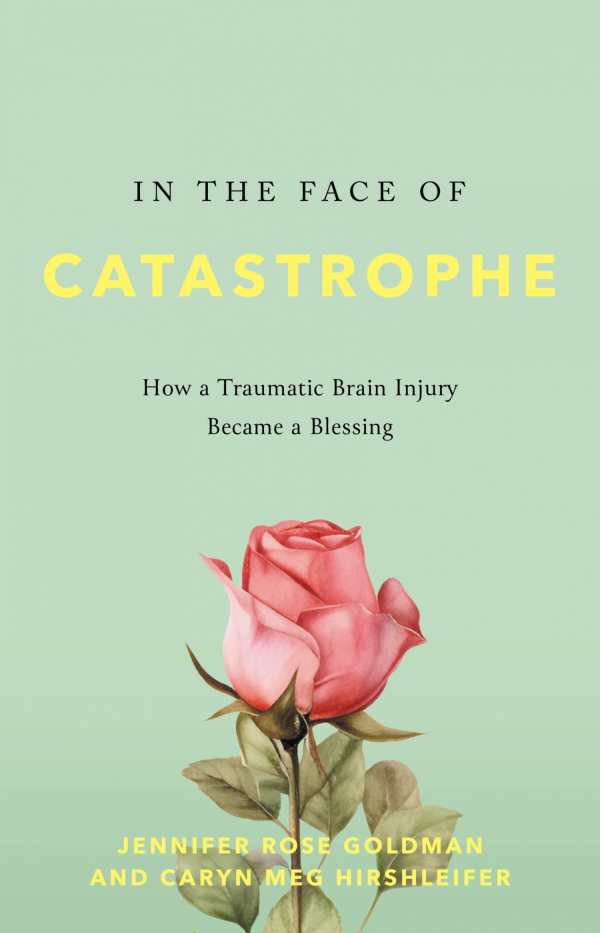In the Face of Catastrophe
How a Traumatic Brain Injury Became a Blessing
Distinctive, intimate, and sensitive to their varying experiences, In the Face of Catastrophe is a family memoir about navigating a health crisis together.
Jennifer Rose Goldman and Caryn Meg Hirshleifer’s multiperspective memoir In the Face of Catastrophe is about facing a life-threatening medical condition.
Straight out of college, Goldman possessed an entrepreneurial spirit. She started a wellness business and became a motivational speaker. “She was passionate about her work, extremely independent, and adventurous,” her mother Caryn Meg Hirshleifer writes. However, while working at her family’s retail store, days before her thirty-first birthday, a violent stroke left her comatose. Her family, reeling from shock, vacillated between wavering faith and paralyzing fear.
Structured as diary entries written by Goldman’s family members, including her father, mother, sister, and partner, the book chronicles the family’s navigation of the effects of Goldman’s stroke. Its testimonials are distinctive, intimate, and sensitive to each person’s experiences. The entries intertwine, but they also overlap within the chapters—reflective of the support system that the family built together.
Goldman’s early entries are transcribed, made up of the the feelings and thoughts that she shared with her mother. As her health improved, her entries became lengthier and more comprehensive. They are guided by italicized affirmations, including “I have strength” and “I am getting better every day.” “This is the mindset I want to embody,” Goldman writes months after being discharged from rehabilitation. Fears and doubts are also expressed in candid terms: “I think about What ifs. What if I don’t get better? What if I can never walk again? What if my right side is always messed up?” These concerns are echoed in her family’s contributions, bridging the entries together.
The prose has both a fragile quality that’s seen during harrowing recollections and a tendency toward humor and lightness, reflecting the family’s teetering emotional states. Hospital notes are also incorporated, documenting Goldman’s progression at a remove; their factual context is edifying. Texts and emails from other family members and from Goldman’s therapist serve a similar purpose.
In the end, the collected evidence of Goldman’s extensive support system is the book’s most compelling thematic component. “The more I think about it, the more I realize how spoiled I was that year,” writes Hirshleifer. “I was given the chance to spend my time with Jenn and my family, embrace intimacy and connection, and come to see how it can fortify us in the face of profound chaos and trauma.” This idea of presence as a gift is the book’s most tangible and inspiring quality.
Terrifying and uplifting by turns, In the Face of Catastrophe is a memoir about the everyday suffering and silver linings discovered while working through a health crisis with family members to assist.
Reviewed by
Brooke Shannon
Disclosure: This article is not an endorsement, but a review. The publisher of this book provided free copies of the book and paid a small fee to have their book reviewed by a professional reviewer. Foreword Reviews and Clarion Reviews make no guarantee that the publisher will receive a positive review. Foreword Magazine, Inc. is disclosing this in accordance with the Federal Trade Commission’s 16 CFR, Part 255.

